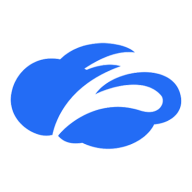


Find out in this report how the two Firewalls solutions compare in terms of features, pricing, service and support, easy of deployment, and ROI.
Clients are now comfortable and not wasting productive hours on IT support.
The automation part is giving us a cost benefit and speed; we can react faster.
It's a very useful tool to mitigate and protect your enterprise.
I observed a fifty to sixty percent reduction in operational costs after migrating to FortiGate VM.
They have a platform that organizes their networks and access effectively.
The managed service aspect of Zscaler Internet Access has allowed for reduced staffing costs, resulting in a saving of approximately 20-25% compared to prior expenses.
They offer very accurate solutions.
The quick resolution of issues with Fortinet FortiGate is due to the support of the company and the fact that the equipment is easy to work with.
I would rate the technical support for Fortinet FortiGate a ten out of ten.
Their support is helpful and effective.
The end-user support is delayed at levels L2 and L3.
Customer service and support are very good.
The technical support for Zscaler Internet Access is rated around seven out of ten due to some response time issues and the engagement model.
I find customer support to be quite adequate
They scale up really well from smaller models like the FortiGate 40 and 50 to bigger sites with the FortiGate 100 for more throughput - up to enterprise datacenters.
The variation comes in terms of the interfaces and throughputs, but from a security perspective, you get the same benefit, irrespective of whether you have an entry-level unit or an enterprise.
We determine sizing based on multiple factors: number of users, available links, traffic types, server count, services in use, and whether services will be published.
It can start with a single core and scale up to a 32-core license for a robust deployment.
I find Zscaler Internet Access to be highly scalable, which was one of the reasons for choosing it.
Zscaler Internet Access is scalable and has points of presence across the globe to ensure low latency and reliable connections.
They require close to 200,000 megabits per second, and this bandwidth requirement has posed problems for both Zscaler and Netskope.
We're experiencing 99.999% availability consistently.
I would rate the stability of Fortinet FortiGate a ten out of ten.
Currently, we are experiencing a general outage of one of the main internet service providers of the Dominican Republic, and we have not been impacted in our operations because with SD-WAN, we have another internet service provider and we are working with the second WAN connection without any disruption.
Recently they have had more, requiring internal testing to ensure deployment stability.
Zscaler Internet Access is stable and capable of building resilient architectures.
Zscaler Internet Access is very stable, and I would rate its stability as nine out of ten.
Investing in a solution that can accommodate such growth would be more cost-effective than repeatedly purchasing new hardware.
The constant daily revisions necessitate meticulous identification of the relevant documents to prevent the use of outdated information that could jeopardize our environment.
While Fortinet claims to offer a comprehensive network solution, it falls short in addressing computer application issues, particularly server security.
The API needs better integration to match accounts and objects more effectively.
Now, these features require separate products like FortiManager, FortiAnalyzer, and a FortiCloud subscription for reporting.
We cannot really position the Fabric if the licenses, renewal parts, or other components have monetary requirements that hinder full utilization.
The response time and engagement model for technical support could be improved to handle complex outages more efficiently.
In future updates, I would like to see some of the features bundled into the existing product set, perhaps more AI features and a refreshed interface.
One feature I am missing is the ability to connect automatically to internal monitoring systems.
FortiGate is priced lower than Palo Alto.
Last year, I renewed the support for three years, which can sometimes be expensive but depends on the security benefits and how it helps us.
It is about 20% cheaper.
The license for Fortinet FortiGate-VM costs 100K to 150K Philippine pesos per year for VM1 or VM2.
They could be slightly cheaper, however, Fortinet offers a good cost-benefit ratio.
FortiGate VM is considered a premium product, which can be costly.
Zscaler Internet Access is recognized as an expensive solution.
Zscaler Internet Access is less expensive than competitors like Palo Alto, offering a premium service justified by security enhancements and cost-effective scalability.
In terms of security, we have not experienced any security flaws or loopholes, and it has proven to be quite stable.
FortiGate has helped reduce the risk of cyberattacks that might disrupt our client's production.
These features help reduce our downtime, manage the ISPs, and deploy SLAs for all the website traffic.
The more integrated we become, the less we spend on solving bugs and issues, allowing us to reduce time focusing on understanding and improving our network.
FortiGate VM allows me to avoid the hardware lease recycle every five to eight years.
Fortinet Security Fabric and real-time threat response capabilities are the main selling points.
The most valuable feature for me is the ability to see how my network and traffic looks with modules like analytics and insights.
Some of the most valuable features of Zscaler Internet Access include secure web gateways, URL filtering, data loss prevention, anti-malware defense, file extension blocking, and a comprehensive categorization system.



Fortinet FortiGate offers comprehensive network security and firewall protection across multiple locations. It effectively manages data traffic and secures environments with features like VPN, intrusion prevention, and UTM controls.
Organizations rely on Fortinet FortiGate for its robust integration with advanced security policies, ensuring significant protection for enterprises, cloud environments, and educational sectors. It facilitates network segmentation, application-level security, and authentication management, securing communication within and between locations such as branches and data centers. Its efficient SD-WAN and UTM features enable streamlined data management and enhanced threat protection capabilities. Users appreciate its centralized management, facilitating seamless operations across diverse environments.
What are the key features of Fortinet FortiGate?
What benefits should users expect from Fortinet FortiGate?
Fortinet FortiGate is crucial in sectors like education, offering robust networks for secure data flow between campuses and facilitating remote learning. In enterprise environments, it allows efficient management of application traffic and security across multiple branches, while in the cloud, it seamlessly integrates with diverse platforms to enhance security infrastructure.
FortiGate Virtual Appliances allow you to mitigate blind spots by implementing critical security controls within your virtual infrastructure. They also allow you to rapidly provision security infrastructure whenever and wherever it is needed. FortiGate virtual appliances feature all of the security and networking services common to traditional hardware-based FortiGate appliances. With the addition of virtual appliances from Fortinet, you can deploy a mix of hardware and virtual appliances, operating together and managed from a common centralized management platform.
Zscaler Internet Access is a cloud-native security service edge (SSE) platform. Its main purpose is to provide AI-powered protection for all users, all applications, and all locations. The solution replaces other legacy network security solutions to stop advanced attacks and prevent data loss by using a comprehensive zero trust approach.
Zscaler Internet Access Features
Zscaler Internet Access has many valuable key features. Some of the most useful ones include:
Zscaler Internet Access Benefits
There are several benefits to implementing Zscaler Internet Access. Some of the biggest advantages the solution offers include:
Reviews from Real Users
Below are some reviews and helpful feedback written by Zscaler Internet Access users.
A Service Manager at a construction company says, "There are a bunch of different capabilities that are valuable within the platform. We use quite a lot of them, but not everything. The ones that are most important to us are the URL Filtering and the application control. For our needs, the cloud-native proxy architecture is a very good solution. This architecture helps with cyber threats because we inspect most of the traffic and we can see that a lot of threats are stopped directly in the secure web gateway."
Owen N., Security Architect at Claro Enterprise Solutions, explains that the solution’s most valuable features include “The integration of the gateway that inspects all ports and protocols. So, there is threat prevention; The cloud sandbox; VNS security; Access control that will protect URL filtering and the cloud firewall; Data protection that will protect your gateway, like your CASB or your cloud DLP; The capabilities of this will point your traffic to Zscaler Cloud.”
An Architecture Senior Manager at an insurance company mentions, "The data loss prevention feature is the most valuable. It stops our users from inadvertently leaking our customers' data to the Internet or anywhere else it shouldn't go." He also adds, “The solution provides quick access to cloud services, securing our data and allowing us to inspect all our traffic.”
We monitor all Firewalls reviews to prevent fraudulent reviews and keep review quality high. We do not post reviews by company employees or direct competitors. We validate each review for authenticity via cross-reference with LinkedIn, and personal follow-up with the reviewer when necessary.